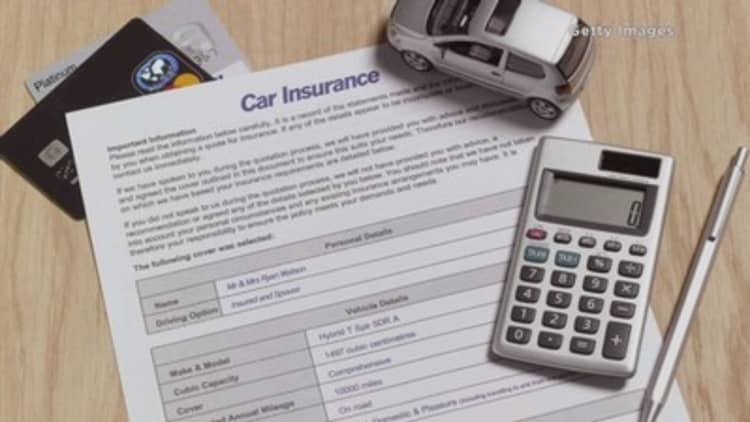
Lying on an insurance application can be an expensive mistake.
And yet, it's one plenty of people make. A new survey of more than 3,000 consumers from insurance marketplace CoverHound.com found that 51 percent of auto insurance applicants don't tell the truth. Men and women are equally likely to provide incorrect information, the site found, while millennials are more likely to lie than Gen Xers or baby boomers.
Some people are trying to pull a fast one by omitting mentions of recent tickets or accidents, but other inaccuracies stem from guesswork during the application process, said Keith Moore, the site's chief executive. Shoppers don't know the trim package on their vehicle, aren't sure how many miles they drive in a given year, or don't remember when they got that speeding ticket — and they don't double-check before submitting their application.
Whatever your intent, providing incorrect information for any kind of insurance is likely to catch up with you. "The truth always comes to the surface," Moore said.
Often, insurers root out mistakes early on. In the course of processing your application, they check details you provide against those in a centralized database of claims and applications, said Peter Kochenburger, executive director of the University of Connecticut's Center for Insurance Law. (Among others, there's the Medical Information Bureau for health and life insurance, and C.L.U.E. for home and auto claims. Both offer consumers a free copy of their record.)
At a minimum, that would mean higher rates to reflect the correct details, or a denied application. But it could be even scarier, particularly if you intentionally lied to get a better rate.
"That's fraud," said Loretta Worters, a vice president for the Insurance Information Institute. Potential legal consequences vary by state, type of insurance and the scope of the alleged fraud. Some insurers may also be more forgiving of accidental errors than others.
Don't breathe a sigh of relief if your application was approved. Misrepresentations can come back to bite you down the line if they are relevant to a claim.
"Typically, what would happen is, your insurance would be void," Worters said. You won't be covered. Or the policy may pay out less than expected if, say, you underestimated your home's value or thought you had a less expensive trim package on your car.
Depending on the state and type of insurance, there can be a limit to how long insurers have to spot a problem. With life and disability insurance, for example, they generally have two years to investigate and rescind a policy, said Kochenburger.
"After that, even if there's a misrepresentation, the insurance company can't often do anything about it," he said.
In some cases, giving incorrect information could prevent you from getting an even better rate, said Moore. You might be missing out on insurer discounts by overestimating your mileage, for example, or by forgetting to mention your home security system when applying for home coverage.
To avoid accidentally offering incorrect information, gather any relevant information before you sit down to apply, said Moore. That might include past policies, details of recent claims, vehicle specs or home appraisals.
"If you don't know what a question means, ask," said Kochenburger. Ditto for any details you think might affect your rate either way. Save those communications with the insurance agent or company. "You probably will never need it," he said, "but it's better to have it."
"When you file a claim with your insurance company, you don't also want to be in the position of arguing whether there's a material misrepresentation in the policy," he said.





